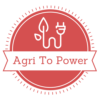About Us
India is largely impacted by the mismatch between unused farm waste that is available (usually) burned on the field by farmers, and the non-traceability of the farm waste or its availability. There are private sectors which want to use farm waste for various applications like fuel, paper, construction, etc. and on the other side are Government agencies which want to do policy interventions based on biomass availability. However, lack of data availability, limits these interventions
CropBurning aims to answer these questions by use of technology:
a) When farm waste is being burned,
b) Where farm waste is being burned
c) What type of crop’s farm waste is getting burnt
The primary objective of CropBurning is to provide access to fires and air quality data through an online dashboard. Technology is the core of our work. We use technology to identify areas under farm fire and then also use technology to help identify the availability of farm waste. The web portal is an open source site.
The web dashboard uses data from various sources like This includes data from NASA VIIRS , Google Maps, Google Earth, Sentinel, ISRO and various other sources and we will be keep on adding new data sources to enhance the dashboards to extract the information of biomass fires and biomass identification to recommend optimum location for paddy straw collection. The daily extract is filtered, processed in the shape of understandable information for the user. It has been our endeavour to display information as accurately as possible. However, users must use this information with discretion and prudence.
The Web dashboard is developed in a phased manner:
Phase 1: Biomass Fire Detection which will display:
Phase 2: Biomass Crop Identification
Phase 3: Burnt area corresponding to Biomass Fires
Disclaimer:
The source for fire detention is from multiple sources both National and International. This includes data from NASA VIIRS, Google Maps, Google Earth, Sentinel, ISRO and various other sources. Users bear all responsibility and liability for their use of data, and for any loss of business or profits, or for any indirect, incidental or consequential damages arising out of any use of, or inability to use, the data, even if the dashboard information previously advised of the possibility of such damages, or for any other claim by you or any other person. This dashboard makes no representations or warranties of any kind, express or implied, including implied warranties of fitness for a particular purpose or merchantability, or with respect to the accuracy of or the absence or the presence or defects or errors in data, databases of other information. The designations employed in the data do not imply the expression of any opinion whatsoever on the part of CropBurning concerning the legal or development status of any country, territory, city or area or of its authorities, or concerning the delimitation of its frontiers or boundaries.
Partners
Climate Change is a global problem which requires a holistic approach and significant effort in R&D
and collaborations between partners to help mitigate it. CropBurning is one such initiative led by
A2P Energy and its not-for-profit arm Energy Harvest Trust with active support from various partners
as listed below.
In becoming the benchmark company for ecological transformation, Veolia is committed to
developing new social and economic growth models that are more efficient, better balanced, and
sustainable. We believe that this partnership will be able to create informed knowledge for
improving access to resources, preserving resources, and replenishing resources.
A2P Energy through its core mission on maximization of crop waste has partnered with NASA for
analyzing farm fires data using satellite images.
Energy Harvest Trust through its mission of helping farmers utilize crop waste under Google AI 4
Social Good project and partnership with NVIDIA on using technology for helping reduce crop
burning and thus increasing farmers income and reducing climate change impact.





